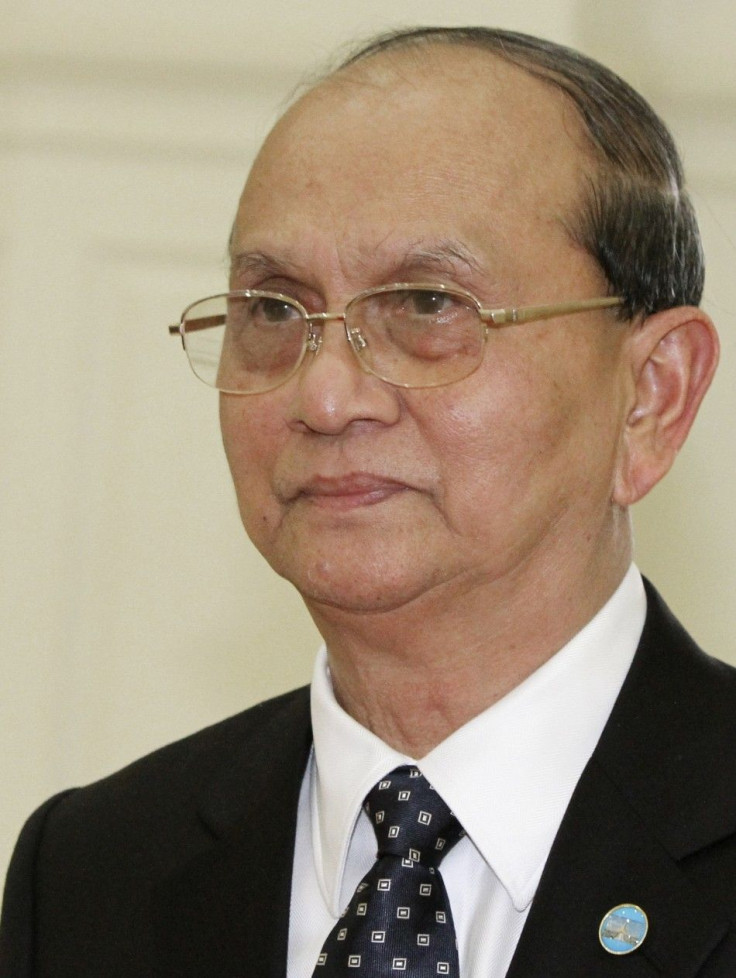Myanmar Eliminates Most Forms Of Media Censorship

The government of Myanmar (also known as Burma) has abolished censorship of the press, in yet another reform measure taken by President Thein Sein’s nominally civilian government.
Tint Swe, the chief of the government’s Press Scrutiny and Registration Department (PSRD), told the Agence France Presse agency: "Any publication inside the country will not have to get prior permission from us before they are published. From now on, our department will just carry out registering publications for keeping them at the national archives and issuing a license to printers and publishers.”
Some Burmese journalists hailed the decision.
Mizzima, an Indian-based news agency run by Burmese exiles, said the removal of press controls was met by “jubilation” and "a sense of shock and disbelief after decades of harsh censorship."
The exiled news service indicated that censorship was introduced in Burma in 1964 and applied to “everything from newspapers to song lyrics, fiction, poems and even fairy tales.” An estimated 30,000 Burmese Internet sites will now be relieved of censorship rules.
Ko Ko, the general secretary of the Myanmar Journalists Association, told Mizzima: “There will be accountability, along with freedom of the press. Under the freedom of press, if a story is written indiscriminately [not factually], there will be many problems. [If a story harms] people or organizations, they will file lawsuits. In the countries that have freedom of press, that is common. So, [media persons] will have more accountability.”
Other Burmese journalists greeted the news with some caution.
"If I speak superficially I can congratulate the government for lifting censorship," said pro-democracy activist Win Tin, according to the Daily Telegraph newspaper of Britain.
"But on the ground censorship is still there. There is a danger to the press – they may be prosecuted after they've published. There's also a danger of self-censorship because journalists are afraid."
In addition, Tin Htar Shwe, the head of the BBC's Burmese Service, cautioned that journalists in Burma could still be punished for writing anything that angers the government.
Moreover, films will remain under the government’s censorship watch.
Still, the move to ease media censorship raises hopes that Thein Sein’s government will continue to make further reforms in order to put Burma on a firm path towards democracy.
Sein’s administration has also freed hundreds of political prisoners, relaxed restrictions on trade unions – and most notably – ran a free and fair election in April that placed prominent opposition leader and pro-democracy activist Aung San Suu Kyi into parliament for the first time ever.
In response, governments in the U.S. and Europe have eased some sanctions against the Burmese government that had been in place for decades.
The organization Reporters Without Borders (RWB), which campaigns for press freedoms around the world, ranked Burma near the bottom of countries in terms of journalistic freedom for 2011.
Burma was 169th on RWB’s so-called ‘Press Freedom Index,’ above only Sudan, Yemen, Vietnam, Bahrain, China, Iran, Syria, Turkmenistan, North Korea and Eritrea.
Finland and Norway tied for number one on the Index.
Interestingly, such prominent western democracies as the UK (#28), Australia (#30), France (#38), Spain (#39), and the US (#47) fared worse than one would expect.
© Copyright IBTimes 2024. All rights reserved.




















